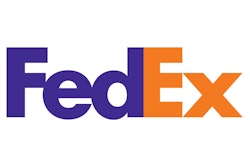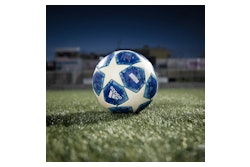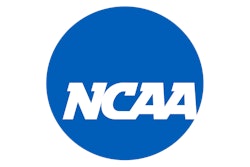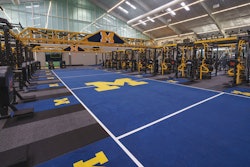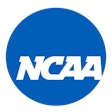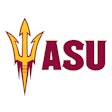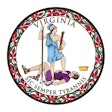A week's worth of events in January put academic reform back on the front burner.
Already "bone weary" by his own admission, Andy Geiger will not leave his post as athletic director at Ohio State University in June without first shouldering some weighty reform initiatives.
On Jan. 5, Geiger announced his resignation after allegations of academic fraud and subsequent NCAA investigations had haunted his athletic department for two years and, as he put it, taken the day-to-day enjoyment out of a job he has held since 1994. To help Ohio State avoid future scandal, university president Karen Holbrook has asked for Geiger's assistance in transferring student-athlete support services to the office of the provost. In addition, he will help align the athletic department's compliance office with the university's office of legal affairs and implement a comprehensive booster-education program with help from the vice president for university development and the president of OSU's alumni association.
By shifting oversight of functions that had long fallen under the auspices of athletics to the university governance structure at large, Ohio State has climbed aboard a bandwagon driven by academic-reform groups for decades. "Most of us involved in reform are amused by the fact that in a lot of significant ways, nothing new has been said since the Carnegie Foundation Report of 1929," says Gary Engstrand, secretary to the faculty at the University of Minnesota and a steering-committee member of the Coalition on Intercollegiate Athletics (COIA), a three-year-old academic-reform body supported by the faculty senates on 44 Division I campuses. "What that foundation said then is equally true now. Nothing has changed in the intervening 75 years."
The timing of Geiger's press conference could not have added more urgency to the COIA reform message. On Jan. 6, representatives from 24 faculty senates gathered at Vanderbilt University for the coalition's first official conference -- two days of reviewing, tweaking and ultimately endorsing a document titled "Academic Integrity in Intercollegiate Athletics: Principles, Proposed Rules and Guidelines." COIA faculty senates not represented at the conference had until Feb. 28 to approve the revised document, which outlines best practices for individual schools and proposed changes to NCAA bylaws.
Then, as the COIA conference was wrapping up, the annual NCAA Convention was kicking off in Dallas. On Jan. 10, the convention's final day, a noon luncheon attended by the association's management council and its board of directors, which is made up of university chancellors and presidents, put nationwide academic reform squarely on the front burner. "We basically lobbied the presidents to support strong reform measures," says management council member Scott Kretchmar, the faculty athletics representative at Penn State University. "They're the ones who call the final shots."
The NCAA board of directors did, in fact, fire an academic-reform salvo that day, approving a minimum standard for sports programs in terms of the individual academic performance and retention of student-athletes. Failure to meet the minimum Academic Performance Rate (APR) of 925, which is roughly the equivalent of a 50-percent graduation rate using the current federal calculation methodology, will result in penalties escalating from a warning after one year, recruiting and financial aid limitations after two consecutive years of APR futility, potential post-season ineligibility after three years and loss of NCAA membership after four years. The APR will be calculated each year based on the number of student-athletes on each team who remain academically eligible, continue as full-time students and graduate.
The COIA's newly refined message, meanwhile, is that academic reform doesn't require an NCAA mandate. Of the 80 separate proposals set forth by the COIA, only a handful are suggested as "rules" that should apply to all schools. "The goal is not to prescribe what schools must do, but to suggest issues that schools need to consider and approaches that may with adaptation fit local needs and strengthen the way athletics supports the educational mission," reads a summary statement on the coalition's web site (math.umd.edu/~jmc/COIA/COIA-Home.html).
Many schools have long taken academic integrity matters into their own hands. Penn State, for one, has always made it a practice that those in charge of the academic advisement of student-athletes report directly to the university's vice provost, not its athletic director. "Athletic departments get into trouble by walling themselves off from the rest of the university," says Kretchmar. "It's happened at a number of schools around the country, where almost separate corporations form around intercollegiate athletics and the oversight that protects the main academic interests of the institution is lost."
Penn State's system of checks and balances is anything but adversarial, Kretchmar adds. PSU athletic director Tim Curley still weighs in on the hiring of academic advisors, even though they don't report to him. "It can work," Kretchmar says. "But it has to be a collegial relationship."
It certainly has worked at Penn State. According to an NCAA database dating back to 1953, the Nittany Lions have never been named in a major rules infraction case of any kind. Though not active in the coalition personally, Kretchmar authored a best-practices white paper published by the American Association of University Professors on which much of the COIA's proposal document is based.
"No school, including Penn State, is immune" to academic scandal, says PSU associate dean of communications John Nichols, a COIA co-founder and steering-committee member. "There are just too many external pressures that can drag what has traditionally been a high-quality, clean program into the abyss. We can't afford to sit around and be smug. We need to step forward like everybody else and make sure this works."
Determining whether any academic reform movement is actually working can be difficult. In 2001, the Knight Commission recommended that college football programs be held to a minimum student-athlete graduation rate of 50 percent or lose bowl-game eligibility, a policy that would have disqualified 27 teams in the recent post-season's field of 56. None of the eight teams competing in the Bowl Championship Series would have made the cut. Though never directly implemented, the recommendation's influence can be seen in the NCAA's aforementioned APR initiative, which is expected to have the greatest impact on football.
Likewise, the search for trend data leads to more questions than answers. In the 11 calendar years since 1993, the NCAA adjudicated 17 major infractions cases involving academic fraud, nearly double the number registered during the previous 12 years. Are more schools engaging in academic fraud, or is the NCAA doing a better job of catching offenders? How many schools have slipped under the enforcement radar?
Anecdotally, at least, the confluence of events this January may represent something of a tipping point in the academic-reform movement. "That's always hard to say until you've got a little bit of distance from it," cautions Minnesota's Engstrand, whose school was rocked six years ago this month by an academic fraud scandal involving its men's basketball program. "I think the coalition is of a view that it now needs to start working in concert with the presidents, because they're the ones who can actually effect change."
Kretchmar contends that no group interested in academic reform acts in a vacuum. "The presidents have a hard time themselves, because they're hired by trustees. Sometimes the trustees don't want too much change, because they have their own interests in athletics," he says. "The Knight Commission more than 10 years ago said presidents need to take control of intercollegiate athletics, and then 10 years later the second Knight Commission met and said, `Why haven't you presidents taken control of intercollegiate athletics?' It's tough for everybody. I don't think any single group can do it. It has to be a group effort."
If Nichols has anything to say about it, the collegiate sports establishment will be hearing from the COIA for as long as it takes to get the message through. "As one of the founders of the coalition, I walked away from our meeting saying, `My God, we're actually making some progress.' There was some dissent, but there's a building consensus. There are growing numbers. We're not at that tipping point yet. But to the extent that the coalition -- in alliance with others -- can continue to make some noise, keep the issue on the front burner, then maybe we'll be well prepared when that tipping point comes."















